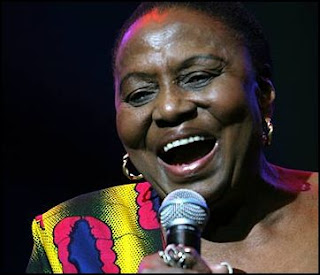Des membres du laboratoire SEDET organisent deux ateliers lors de la conférence de l'
AEGIS de juin 2009 à Leipzig.
[1] Atelier proposé par Céline Badiane-Labrune
Le rôle de l'école dans la recomposition de l'espace
Le redécoupage administratif des territoires opéré par les autorités coloniales, ainsi que la structure pyramidale du système scolaire engendrèrent un nouveau rapport des populations à l'espace : de son village de "brousse" à la capitale fédérale, de l'école élémentaire à l'école normale, l'élève fut le vecteur de nouveaux réseaux sociaux et politiques. Au cours de sa formation, il redécouvrait le territoire local, sa "petite patrie", célébrée par l'école: l'instituteur enseignait les légendes et les contes, le folklore et l'histoire du village ou du canton. Cette tendance fut impulsée à partir des années 1930, dans le cadre de la ruralisation de l'école, et perdura au-delà des indépendances, encouragée par les États africains sous l'égide de l'UNESCO notamment.
Les contributions pourront par exemple porter sur les associations d'anciens élèves, la formation au sein des écoles fédérales d'une identité "aofienne", la place des différentes échelles du territoire dans les programmes scolaires (particulièrement en histoire et en géographie): du local (village, canton) au national. On peut également envisager une communication sur le rôle de l'école dans l'émergence du sentiment national à l'heure des indépendances. Comme nous l'avons évoqué lors de la réunion, les participants doivent également appartenir à d'autres institutions que le SEDET.
The role of schools in the reconfiguration of territories
The administrative redrawing of territories by colonial power as well as the pyramidal structure of the school system led to a new relationship between the populations and the territory. From his village in the bush to the federal capital, from elementary school to the école normale, the pupil initiated new social and political networks. During his training, the pupil would rediscover the local territory (the "petite patrie" celebrated by the school system), the teacher would teach local tales and legends, local folklore, histories of the village or district. This trend emerged in the thirties through the "ruralisation" of school and would continue after independence, fostered by African states notably backed by UNESCO.
Presentations could focus on associations of alumni, the formation of an "AOFian" identity in federal schools, the weight of the different scales of territory in the school programs (especially in history and geography), from the local to the national level. One might think of a presentation on the role of school in the emergence of a national consciousness at the time of independence.
[2] Atelier proposé par Laurent Manière et Jean-Luc Martineau
Enjeux patrimoniaux et recompositions territoriales
L’objectif de l’atelier est d’analyser l’impact de l’enjeu patrimonial dans la recomposition des territoires en Afrique subsaharienne. Héritage commun d’une collectivité, le patrimoine peut s’incarner physiquement dans l’espace (parcs naturels, musées, édifices, salles de spectacle…) ; il peut également être envisagé de façon immatérielle (religion, autorité morale, histoire…). Valoriser, conserver, restaurer, manipuler ce qui doit être transmis aux générations futures constitue autant d’alternatives fortement structurantes pour le territoire. Les contributions pourront étudier l’impact de la question patrimoniale dans l’organisation de l’espace (plusieurs échelles d’analyse sont possibles : villes, quartiers, campagnes, villages, littoraux) ainsi que ses conséquences dans le développement de secteurs économiques nouveaux (tourisme, culture). Une autre grille d’analyse pourra chercher à déceler les enjeux de pouvoir qui sous-tendent ces restructurations et notamment les manipulations dont le patrimoine peut être l’objet (succession, autochtonie, religions).
Patrimonial Issues and Territorial Recompositions
The objective of the proposed workshop is to analyse the impact of multifold patrimonial issues in the reorganization of territories in sub-Saharan Africa. As the common heritage of a community, the patrimony can be thought of as embedded in space (natural reserves, museums, buildings, cinemas, theaters); but can also be considered cultural (religion, moral authority, history). The processes of promoting, securing, restoring, and manipulating what has to be transmitted to future generations involves (implies) many alternatives which would have an impact on the structure of the territory. Contributions could study the impact of the patrimonial issue in the organisation of space (several scales of analysis can be considered: cities, district, countries, villages, coasts) as well as its impact on the development of new economic areas (tourism, culture). Another approach could be to consider power stakes underlying the territory's restructuring processes, in particular when considering manipulations of the patrimony (succession, issues of the indigenous people, religions).















